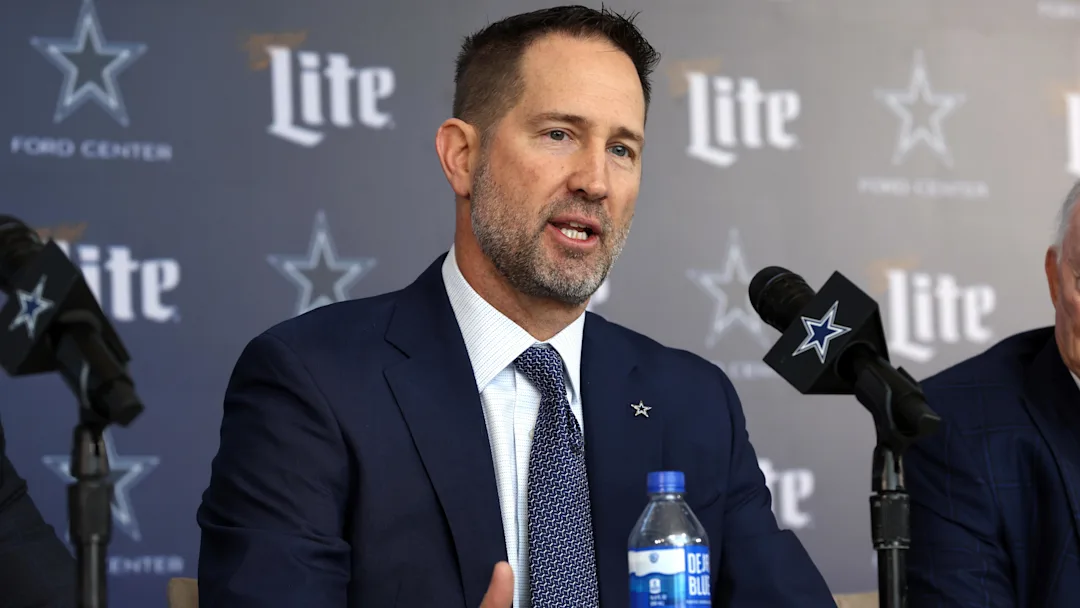Brian Schottenheimer has spent his entire football life immersed in the Xs and Os of the game. The son of legendary NFL coach Marty Schottenheimer, Brian grew up in locker rooms and on sidelines, absorbing schemes, philosophies, and leadership lessons that most coaches take years to learn. But as he enters this next phase of his coaching journey, Schottenheimer is turning his attention to something less tangible than a playbook and more elusive than a perfect game plan: culture.
In an era where schemes are dissected in real-time and analytics drive decisions from the press box to the practice field, Schottenheimer is betting big on something far less scientific—relationships. He believes that building trust off the field is just as critical as executing a third-and-long conversion on it. And he’s putting that belief into action in ways both bold and subtle.
From hosting regular player dinners at his home to organizing team-building outings that include everything from paintball to community service events, Schottenheimer is creating an environment where players aren’t just teammates—they’re a brotherhood. It’s a philosophy grounded in unity, and one that’s quickly becoming the cornerstone of the team’s identity.
“It’s not just about what we do on Sundays,” Schottenheimer said. “It’s about who we are the other six days of the week. That’s where the real foundation gets laid.”
That foundation, according to players, is already paying dividends. Veterans and rookies alike have noticed a shift in tone since Schottenheimer emphasized bonding off the field. Meetings are more engaged. Practices are sharper. And perhaps most importantly, there’s a noticeable sense of accountability that flows both ways—between coaches and players, and among the players themselves.
Quarterback Dak Prescott, a natural leader in his own right, credits Schottenheimer with nurturing a team culture where vulnerability is not just accepted but encouraged. “Coach Schotty talks about being real with each other,” Prescott said. “He makes it clear that this is a safe space. You can be yourself, you can speak up, and you know your teammates have your back.”
Prescott pointed to a recent weekend retreat organized by Schottenheimer at a secluded ranch outside of Dallas. There were no footballs, no drills, and no playbooks. Instead, the team spent time hiking, cooking meals together, and sitting around bonfires sharing stories. Some players talked about their upbringings, others opened up about their struggles, and a few even teared up talking about what the game means to them.
“That weekend changed everything,” Prescott said. “We stopped being just coworkers. We became a family.”
Wide receiver CeeDee Lamb echoed those sentiments, calling the retreat “one of the most impactful weekends” of his career. “You think you know your teammates because you see them every day at the facility,” Lamb said. “But then you hear about someone’s journey, their pain, their grind to get here, and you realize how little you actually knew. Coach Schotty gave us that space to really connect.”
For Schottenheimer, that’s the whole point. He’s seen talented teams underperform because of fractured locker rooms. He’s also been part of underdog squads that overachieved because the players would do anything for each other. That experience has cemented his belief that the strongest units aren’t always the ones with the most star power—they’re the ones with the deepest bonds.
“Football is the ultimate team sport,” he said. “It demands trust at the highest level. If you don’t have that, it shows up. Maybe not in September, but by December, it will.”
That philosophy has been shaped over two decades of coaching experience in both the college ranks and the NFL. From his early days as a quarterbacks coach with the Chargers to his coordinator roles with the Jets, Rams, Seahawks, and now with the Cowboys, Schottenheimer has seen how culture can either propel a team to greatness or quietly corrode it from within.
One of the most memorable lessons came during his tenure with the Seattle Seahawks, where Pete Carroll’s emphasis on player wellness and open communication left a lasting impression. Carroll’s mantra—“Always compete”—extended beyond the field and into every aspect of team life. Schottenheimer saw firsthand how a culture of authenticity and empathy could co-exist with elite performance.
He’s brought that same spirit to his current role, even adapting Carroll’s approach to fit his own personality. Where Carroll leans into a laid-back California vibe, Schottenheimer infuses his culture with a blend of Midwestern humility and military-style discipline—organized, structured, but deeply personal.
“I’m not trying to be someone I’m not,” Schottenheimer said. “But I am trying to be the best version of myself for these guys. That means being available, being consistent, and being intentional with how we spend time together.”
His intentionality is evident in the details. Every Friday during the season, Schottenheimer sets aside time for what the team calls “Real Talk”—an open-mic forum where players and coaches can share thoughts, concerns, or just shout out a teammate for something positive. It’s informal, often emotional, and completely optional. But attendance is high, and participation keeps growing.
Linebacker Micah Parsons said the “Real Talk” sessions have become one of his favorite parts of the week. “It’s a chance to be human,” Parsons said. “We go to war on Sundays, but this gives us a chance to check in with each other as people. That matters more than people realize.”
It’s not just the players who are buying in. Assistant coaches have embraced Schottenheimer’s lead, incorporating similar bonding moments into their positional meetings. Whether it’s a five-minute gratitude circle or sharing a personal highlight of the week, the coaching staff is reinforcing a message that relationships come first.
“I’ve never been part of a staff where the emotional well-being of the players was prioritized this much,” one assistant coach said. “It makes a huge difference in how guys show up every day.”
That sense of purpose has even extended into community outreach. Under Schottenheimer’s guidance, the team has increased its involvement in local charities, youth mentorship programs, and neighborhood clean-up efforts. It’s part of what he calls “servant leadership”—the idea that strength comes from humility and that leaders set the tone through actions, not just speeches.
“When guys serve together off the field, it strengthens their connection on it,” Schottenheimer said. “It’s hard to explain, but you feel it.”
The impact of all these efforts may not show up in stat sheets, but it’s unmistakable in the day-to-day vibe around the team. There’s more laughter in the locker room. There’s less finger-pointing after a tough practice. And when adversity hits—as it inevitably does in a grueling NFL season—there’s a collective resolve that can’t be faked.
“Every team talks about culture,” Schottenheimer said. “But culture isn’t something you print on a t-shirt. It’s something you build, brick by brick, every single day.”
That slow, steady construction is already reshaping the team’s identity. While fans and pundits will continue to debate play-calling decisions and draft grades, Schottenheimer is laser-focused on something he considers just as important: the emotional architecture of a winning team.
“There’s nothing soft about caring,” he said. “In fact, it might be the hardest thing to do—especially in this business. But it’s also the most rewarding.”
As the season unfolds, Schottenheimer knows the pressure will mount. There will be scrutiny, second-guessing, and setbacks. But in those moments, he’s confident that the relationships he’s fostered will serve as the glue that holds the team together.
And if they do, it won’t just be because of the plays he drew up. It will be because he put people first.



